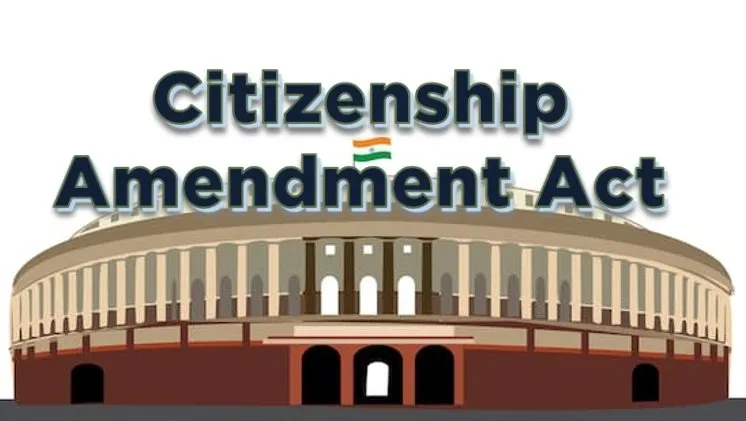The Indian Government has notified the rules for implementing the Citizenship Amendment Act (CAA), paving the way for granting citizenship to undocumented non-Muslim migrants from Pakistan, Bangladesh, and Afghanistan.
What is the Citizenship Amendment ACT (CAA) in India?
The Citizenship Amendment ACT (CAA) aims to protect individuals who have sought refuge in India due to religious persecution. It offers them a shield against illegal migration proceedings.
To be Eligible for Citizenship Amendment ACT citizenship, applicants must have entered in India on or before December 31, 2014. For now, Indian citizenship is granted to those who were born in India or who have lived in the country for at least 11 Years.
CAA also includes a provision for the cancellation of Overseas Citizenship of India (OCI) registration if the OCI card holder violates any provision of the Citizenship Act or any other applicable Law.
Who Does the Citizenship Amendment ACT (CAA) Leave Out?
The CAA has been criticized for excluding Muslims, who make up around 15% of India’s population. The Government explains that since Pakistan, Afghanistan, and Bangladesh are Islamic republics with a Muslim majority, Muslims cannot be considered persecuted minorities.
How can Migrants Apply for Citizenship?
The entire process will be held online, and the Ministry of Home Affairs has prepared a portal for the applicants for CAA Citizenship to apply. Applicants must disclose the year when they entered in India without proper documentation.
Why Has the Opposition Been Up in Arms Against It?
The CAA has drawn criticism from the opposing parties, who label it as “discriminatory.” The Congress party has expressed disapproval of the rule notification’s timing, claiming that it is meant to sow division ahead of the 2019 Lok Sabha elections in Assam and West Bengal. Following the Supreme Court’s recent remarks regarding the electoral bond problem, Congress General Secretary Jairam Ramesh accused the government of attempting to deflect attention.
As a law that encourages sectarian separation, Kerala’s Chief Minister Vijayan has vowed that the CAA will not be enforced in the state. Over a hundred lives were lost in the anti-CAA demonstration that was followed by police violence.
Under the New Regulations, How Many People May Apply for Citizenship?
Although an approximate number has not been given, the Ministry of Home Affairs annual report for 2021–2022 states that, between April 1, 2021, and December 31, 2021, 1414 foreign nationals from Pakistan, Bangladesh, and Afghanistan who belonged to these non-Muslim minority communities were granted Indian citizenship through registration or naturalization by the Citizenship Act, 1955.
Through registration in nine states—Gujarat, Rajasthan, Madhya Pradesh, Chhattisgarh, Haryana, Punjab, Uttar Pradesh, Delhi, and Maharashtra—non-Muslim minorities from Pakistan, Bangladesh, and Afghanistan are granted Indian citizenship under the Citizenship Act of 1955.
The Citizenship Amendment Act (CAA) has generated debate and controversy since its proponents contend that it protects minorities who are subject to persecution while its opponents claim that Muslims are the target of discrimination.
FAQ About CAA
Question : What are the main points of CAA Act?
Answer : Under the Citizenship Amendment Act (CAA), persecuted Hindus, Sikhs, Buddhists, Jains, Parsis, and Christians from Afghanistan, Bangladesh, and Pakistan—apart from Muslims—are given expedited access to Indian citizenship.
Question :Can Muslims apply for CAA?
Answer : CAA has not made any provision to impact their citizenship
